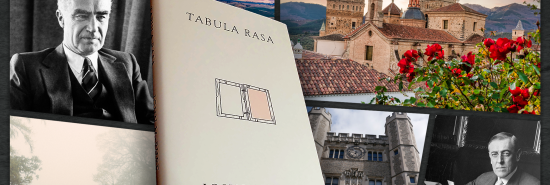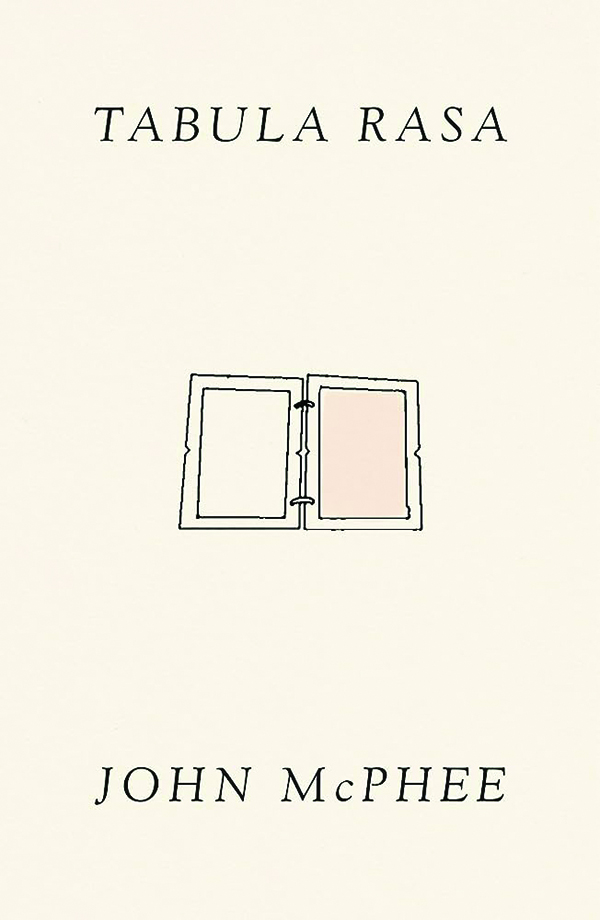
The immortal John McPhee basks in his mortality
Armin Rosen
Most writers who graduate from the subsistence level of their careers come to live inside the dream of something they haven’t written yet, will never write, and probably don’t have the ability to write. If the corpse of a poet rots in the attic of every notary, as Flaubert believed, then a writer’s crawl space is crammed with stories and people who were just too big or too hard for their overwhelmed spirits to transcribe. Every round of self-imposed busywork becomes part of a writer’s lifelong conspiracy to delay those greater works, putting the final verdict of mediocrity as far off in time and in mind as possible. They can accomplish this by futzing around on Twitter, or by writing mid-length book reviews for national political magazines.

John McPhee, one of the demigods of postwar American nonfiction, is 92 years old. He knows that his self-reckoning can’t be put off any longer, and he has the honesty and the talent to share its results with the rest of us. The hopefully titled Tabula Rasa: Volume 1 is McPhee’s review of projects he considered or began but never completed. Here, McPhee gives a valedictory on his remarkable life by describing the things that even he couldn’t do. A memoir of working for Henry Luce, an account of a hypothetical container ship voyage through California’s inland delta, and the exploration of the unlived future of a dead friend from childhood only exist in this volume as three- to five-page precis of unwritten works.
KEEPING THE NOVEL ALIVE BY READING, AND ARGUING, WELL
McPhee is something like the authorial manifestation of the entire used bookstore ethos. Someone browsing Amazon.com wouldn’t suddenly decide to read about country doctors in Maine, or eccentric New Jerseyans who dream of revolutionizing the rigid airship. McPhee’s curiosity becomes contagious after a couple of paper-borne paragraphs, whether he’s aiming it toward the black bears pillaging the trash in his native Princeton, New Jersey, or toward the residents of a nearly deserted island in the Hebrides. The great lesson McPhee holds for today’s nonfiction writers is that curiosity is meaningless without generosity, which is the moral and intellectual openness needed to glimpse the human essence in everything.
Part of the fun of Tabula Rasa is discovering that McPhee had any limits to his craft. Since the mid-1960s, McPhee has won the Pulitzer Prize for a doorstop volume about geologists, written an engrossing book about orange farmers, and ensconced an impossibly steady-minded survey of American race relations within an addictive blow-by-blow of a tennis match McPhee didn’t even attend. Levels of the Game, a triple portrait of Arthur Ashe, the much more obscure Clark Graebner, and late ’60s America told through a U.S. Open semifinal, transcends both its organizing gimmick and its brief page count. It was waiting for me on the distant shelf of a used bookstore, as I hope it waits for you.
Tabula Rasa recounts the moments in McPhee’s life when the ideals of curiosity and generosity ran up against the realities that every writer and every human being eventually faces: time and motivation aren’t infinite, real life is endlessly complex, sleeping outdoors becomes much more difficult in your mid-70s, and some topics ramify to the point of near-mystical incoherence. “This seemed to be a story to tell, to investigate, to amplify, to enrich with details about flight rules, liability law, aircraft design, women priests, women rabbis, and varying portraits of one subject by 16 writers,” he reports. Alas, the sprawling saga of a one-engine plane crash near McPhee’s house in Princeton was “resistant to the weaving and telling.” Other unwritten stories in Tabula Rasa are captured with such stunning compactness that McPhee comes off as wise for not having spent any additional time on them. “He seems to be aiming through a kind of gun sight formed by his toes,” McPhee writes in a single-clause profile of Edward Abbey, a famously hermetic author of books about the desert Southwest and another abandoned McPhee subject.
One loosely organizing theme in Tabula Rasa is an unrealized book about the Spanish region of Extremadura, a dry, harsh hinterland which McPhee circuited as a young man in the mid-1950s and then again with his children decades later. In 1954, McPhee drove through the central plaza of a small town called Trujillo in his surplus U.S. Army jeep and was surprised to find “a much larger-than-life statue of Francisco Pizarro, conquistador of Peru, this remote community his home town.” McPhee is an adventurer who has lived in the same place in central New Jersey for nearly his entire life — in Tabula Rasa McPhee tells us which ancestral Princeton farms have turned into which roadside shopping centers, and we learn that McPhee can see his father’s old office from his current perch on the university’s campus. As a person who links the sensibilities of somewhere and everywhere, it is possible McPhee feels a kinship to a figure like Pizarro, who connects the ongoing sweep of world history to a faraway and deeply rooted place few of us have ever thought about.
A less interesting writer than McPhee might have taken explicit aim at the blinkering prejudices of the time in which he is writing, but Tabula Rasa is the work of a man who has seen enough to know that there have been, and indeed will be, times other than our own. Disorienting shifts in public morals and intellectual values become a chance for the kind of hard meditations on oblivion that only the very old can credibly make. In the space of 700 words, McPhee describes Woodrow Wilson’s multiple erasures from the Princeton campus, first because of a long-ago intra-administrative debate that Wilson lost, thus causing him to run for governor of New Jersey, and much more recently because of Wilson’s exhaustively documented racism. In two instances, and for what would seem to be vastly different reasons, a plaque listing the graduates of the class of 1879 became “the only sign of [Wilson] on campus,” McPhee writes.
The question lingers, though our author knows it would be vain to ask it too directly: If this is what happens with the world-historical figure of the 28th president, what signs will be left of McPhee himself? McPhee doesn’t speculate on what will and won’t remain from his or any other life (though based on the book’s skewering of 21st-century management-speak, he does not seem optimistic about the future of the English language). Tabula Rasa is a chronicle of writerly humility. There is much McPhee knows he doesn’t understand, and much both for him and for us to learn on those inner frontiers where confusion begins.
CLICK HERE TO READ MORE FROM THE WASHINGTON EXAMINER
Armin Rosen is a New York-based reporter at large for Tablet.
